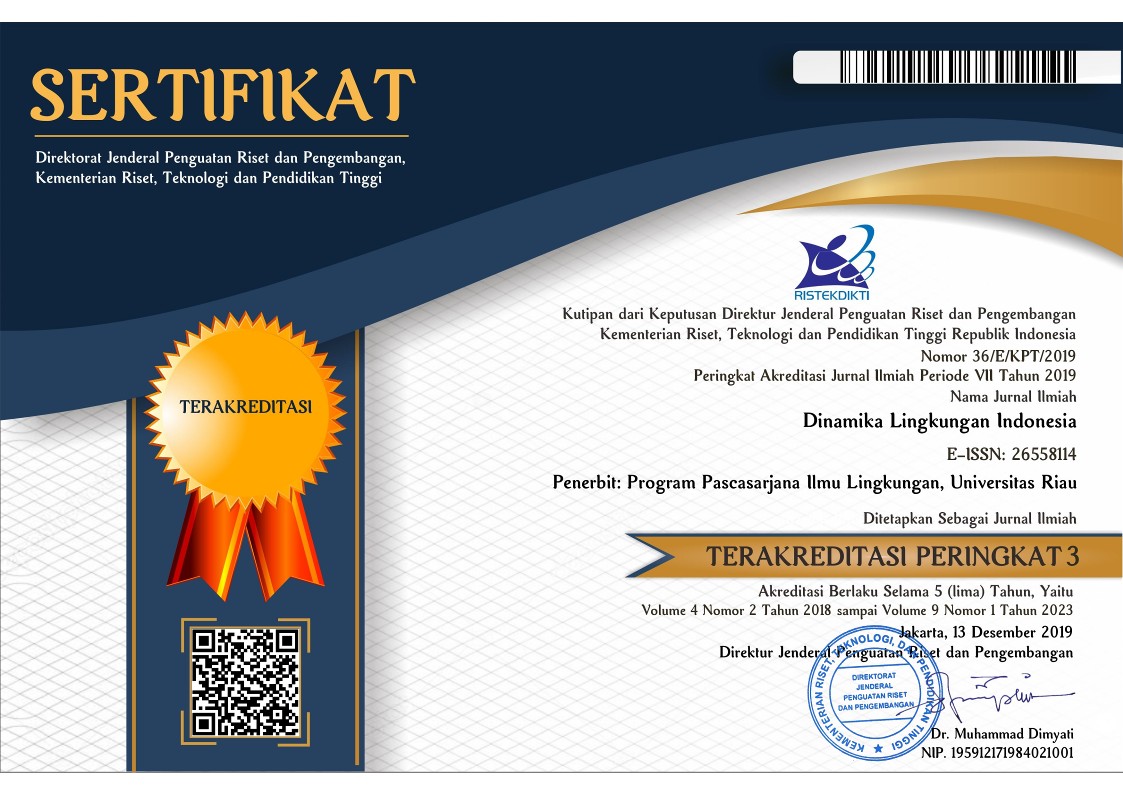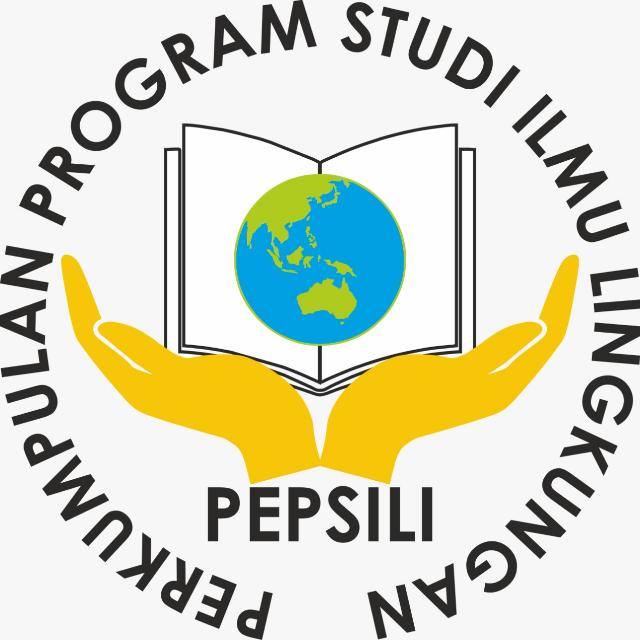Menilik kebijakan pengolahan limbah B3 fasilitas pelayanan kesehatan selama pandemi COVID-19 di Provinsi Jawa Barat
Abstract
Managing hazardous medical waste in COVID-19 era has its own challenges. Acknowledging such challenges, the provincial Government of West Java suggested every health care facility in West Java to collaborate with PT Jasa Medivest or other companies that provide waste management services. Commonly, they use incinerator machines as their main tools to demolish the hazardous medical waste. Although it is a commonly used method to demolish medical waste, there are several issues that need to be marked. Therefore, this study aims to observe and analyze the advantages and disadvantages of the suggestion made by the Provincial Government from the perspective of environmental and economic sustainability. This study also proposes several alternative methods to overcome the problems by reflecting on methods that other countries had successfully conducted. This study uses a normative legal research method, in which secondary data are obtained from library research. The data obtained are analyzed and explained using descriptive methods. The results revealed that in the terms of environmental sustainability, the use of incineration method has the potential to perpetuate air pollution. Meanwhile, in terms of financial efficiency, collaborating with PT Jasa Medivest or other companies that provide waste management services incurs a fairly high cost. Hence, it is necessary to evaluate and consider other waste management options.
Keywords
Full Text:
PDFReferences
Ali, Z. (2009). Metode Penelitian Hukum. Sinar Grafika. Jakarta
Asian Development Bank. (2010). Sustainable Urban Development in The People’s Republic of China: Municipal Solid Waste Treatment: Case Study of Public-Private Partnerships (PPPs) in Wenzhou. Dipetik pada 19 Agustus 2019, dari: https://www.adb.org/publications/municipal-solid-waste-treatment-case-study-ppps-wenzhou.
Astuti, L. T. (2020). Tantangan Penanganan Limbah Medis Era Covid-19. Seminar IESA. Jakarta.
Chaerul, M., Junpi, L.L., Ekaristi, N. (2013). Meminimasi Resiko Dalam Sistem Pengelolaan Limbah Medis di Kota Bandung. Jurnal Manusia & Lingkungan, 20(2): 137-143. DOI:
https://doi.org/10.22146/jml.18480.
Chinese Government. (2020). English version of the Guide on Management & Technical on Emergency Treatment and Disposal of Medical Waste Caused by Covid-19. Dipetik pada 16 Agustus 2020, dari: http://www.mee.gov.cn/ ywdt/xwfb/202001/t20200129_761043.shtml.
Damanhuri, E., Wahyu, I.M., Ramang, R., Padmi, T. (2009). Evaluation of Municipial Solid Waste Flow in The Bandung Metropolitan Area, Indonesia. Journal Mater Cycles Waste Manag, 11(3): 270-276. DOI: https://www.doi.org/10.1007/s10163-009-0241-9.
Dai, S. (2016). Optimized WtE Conversion of Municipal Solid Waste in Shanghai Applying Thermochemical Technologies. Thesis Report. Environmental Engineering, KTH School of Architecture & the Built Environment. Stockholm.
Direktorat Jenderal Pencegahan & Pengendalian Penyakit (P2P). (2020). Pedoman Pencegahan & Pengendalian CORONAVIRUS DISESASE (COVID-19) Revisi ke-3. Dipetik pada 25 April 2020, dari: https://covid19.
kemkes.go.id/protokol-covid-19/kmk-no-hk-01-07-menkes-413-2020-ttg-pedoman-pencegahan-dan-pengendalian-covid-19/.
Direktorat Penilai Kinerja Pengelolaan Limbah B3 & Limbah Non B3. (2018). Peta Jalan (Roadmap) Pengelolaan Limbah B3 dari Fasilitas Pelayanan Kesehatan (Fasyankes). Kementrian Lingkungan Hidup & Kehutanan. Jakarta.
Hamdi, A. S. (2014). Metode Penelitian Kuantitatif Aplikasi dalam Pendidikan. Deepublish. Yogyakarta.
HuMas Jawa Barat. (2020). Jabar Tangani Limbah Medis COVID-19. Diambil pada 23 Mei 2020, dari: https://jabarprov.go.id/index.php/news/37270/2020 /04/03/Jabar-Tangani-Limbah-Medis-COVID-19.
Hu, H. (2015). A Critical of Waste Incineration Plants in Wuhan (China) Based on Site Selection, Environmental Influence, Public Health & Public Particiaption. International Journal of Environmental Research and Public Heatlh, 12(1): 7593-7614. DOI: https://doi.org/10.3390/ijerph120707593.
Ibrahim, J. (2006). Teori & Metodologi Penelitian Hukum Normatif. Malang: Bayumedia Publishing.
International Monetary Fund (IMF). (2020, April 4). World Economic Outlook, April 2020: The Great Lock Down Chapter 1: Global Procpects & Policies. Dipetik pada 20 Juli 2020, dari: https://www.imf.org/en/Publica tions/WEO/I ssues/2020/04/14/weo-april-2020.
Kementerian Lingkungan Hidup & Kehutanan. KLHK Perkuat Regional Untuk Respon Limbah Infeksius COVID-19. Dipetik pada 28 Desember 2019, dari: http://ppid.menlhk.go.id/siaran_pers/browse/2477.
Laurence. (2020). Coronavirus: The world economy at risk. France: The Organisation for Economic Co-operation & Development (OECD).
Mohajit. (2019). Financial Prospect of The Waste to Energy Application in Solving The Most Problematic Solid Waste Management in Indonesia. Geographia Technical, 14(Special Issue): 194-200. DOI: https://www.doi.org/10.2116 3/GT_2019.141.33.
Pamungkas, Y. (2010). Teknologi Co-processing: Solusi Alternatif Mereduksi Bahan Bakar & Gas CO2 di Industri Semen Indonesia. Jurnal Rekayasa Proses, 4(2): 45-50. DOI:
https://doi.org/10.22146/jrekpros.1890.
Prasetiawan, T. (2020, Mei). Permasalahan Limba Medis COVID-19 di Indonesia, Dipetik pada 25 Desember 2020, dari: http://puslit.dpr.go.id/.
Prasetiyadi., Wiharja., Wahyono, S. (2018). Teknologi Penanganan Emisi Gas dari Insinerator Sampah Kota. Jurnal Rekayasa Lingkungan, 11(2): 85-93. DOI: https://doi.org/10.29122/jrl.v11i2.3465.
Soekanto, S. (1984). Pengantar Penelitian Hukum. UI-Press. Jakarta.
World Health Organization. (2020, April 4). Countries, Areas or Teritories With Cases. Dipetik pada 20 Juni 2020, dari:
https://www.who.int/emergencies /diseases/novel-coronavirus-2019.
World Health Organization. (2020). Global epidemiological situation. Dipetik pada 15 Juni 2020, dari: https://www.who.int/yaws/epidemiology/en/.
Yu, H. (2020). Reverse Logistic Netrwork Design for Effective Management of Medical Waste in Epidemic Outbreaks: Insights from the Coronavirus Disease 2019 (COVID-19) Outbreak in Wuhan (China).
International Journal of Environmental Research and Public Health, 17(5): 1-25. DOI: https://doi.org/10.3390/ijerph17051770.
Zhu, H. (2019, January ). Study on The Evolution & Transformation of Chlorine During Co-Processing of Hazardous Waste Incineration Residue in a Cement Kiln. Jurnal Waste Management and Research, 37(5): 495-501. DOI:
https://doi.org/10.1177/0734242X19828147
DOI: http://dx.doi.org/10.31258/dli.8.1.p.73-79
Refbacks
- There are currently no refbacks.





